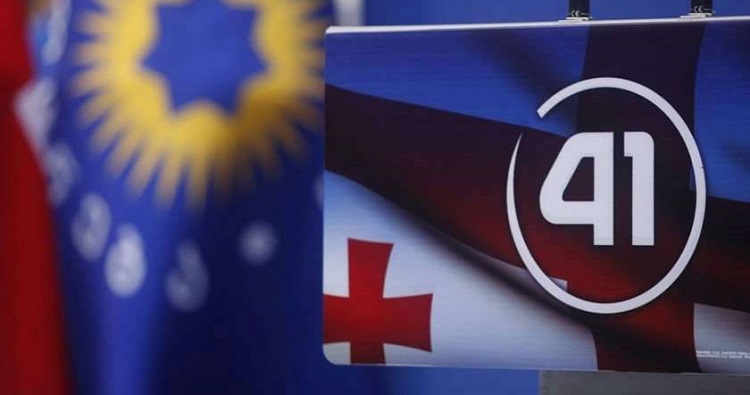Ruling party marks 10th anniversary of foundation as “first Georgian Gov’t without war”

The statement celebrates the “crucial role” of the party in the recent history of the country, noting Georgian Dream has won elections and public votes nine times since its formation in 2012. Photo: Georgian Dream Press Service
The ruling Georgian Dream party marked the 10th anniversary of its foundation on Thursday with a statement that said it had formed the first Government in modern Georgian history during which the country did not experience war.
The statement celebrates the “crucial role” of the party in the recent history of the country, noting Georgian Dream has won elections and public votes nine times since its formation in 2012.
In its release the party stresses the “worst situation” in terms of democracy and human rights under the “authoritarian regime” of the United National Movement at the time of the formation of GD.
It was exactly in this hard and difficult situation that Georgian Dream under the leadership of Bidzina Ivanishvili was able to make a democratic change in the development of the country. Bidzina Ivanishvili and Georgian Dream restored freedom and democracy to the people, which is a necessary condition for the country's progress and development,” the statement said.
It also lists the judiciary, the Prosecutor's Office and the Ministry of Internal Affairs as no longer being used as “a repressive mechanism” since the party’s gaining of power a decade ago, noting the change has been “clearly evidenced” by “studies and statistics” of a number of prominent international organisations.
The Government of the Georgian Dream is the first Georgian Government during which the country has not had a war. Through a pragmatic foreign policy, [and] despite serious security challenges, Georgian Dream has strengthened peace and qualitatively enhanced the country's stability and security,” the release said.
The party also insisted Georgia had made “unprecedented progress” on its path to integration into Western institutions, and that the degree of compatibility with NATO standards of its own agencies had been “qualitatively increased”.
The statement also acknowledges “a number of mistakes and shortcomings” without specifically mentioning them.
 Tweet
Tweet  Share
Share